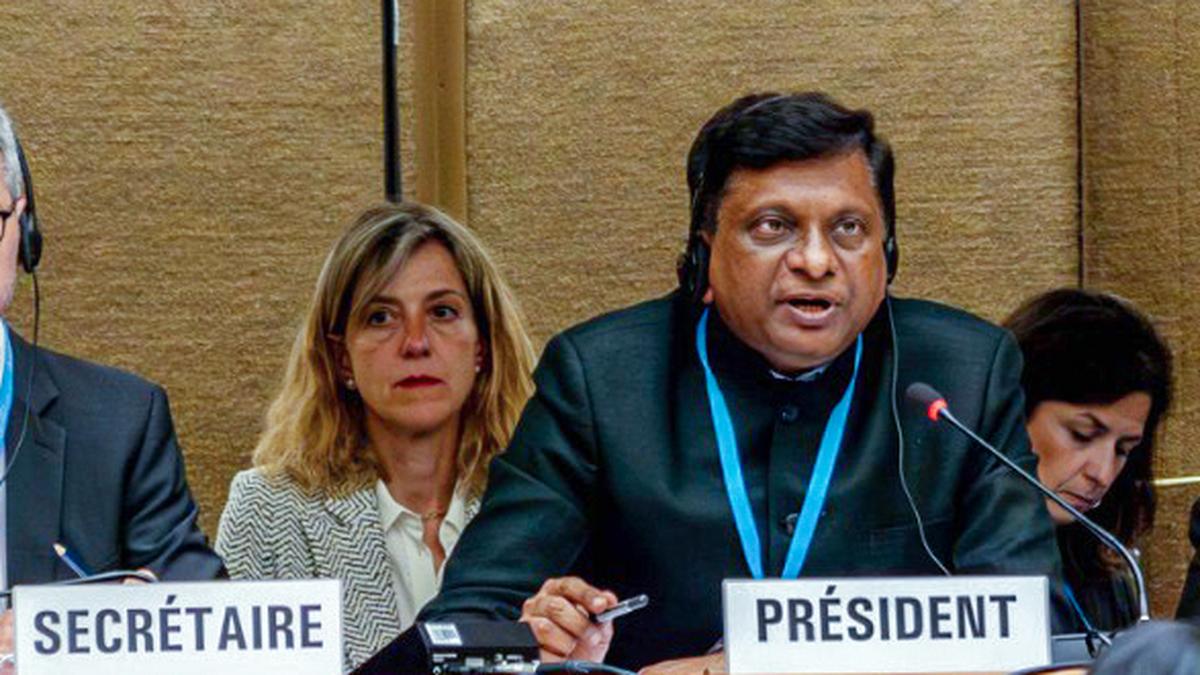
India highlights commitment to implement proactive actions for women and adolescents’ health at World Health Assembly
The Hindu
India showcases commitment to women, children, and adolescent health at 77th World Health Assembly, emphasizing investment and policy adjustments.
India highlighted its commitment to implement proactive actions for women, children and adolescent health and well-being at the on-going 77th World Health Assembly, at Geneva, while hosting a side event on the topic.
Held in collaboration with Norway, the United Nations Children’s Fund (UNICEF), the United Nations Population Fund (UNFPA) and the Partnership for Maternal, Newborn and Child Health (PMNCH), the event was aimed at sharing emerging evidence and discoveries, and fostering dialogue on pivotal opportunities for investment in health, said a release issued by the Ministry on Thursday.
Also read: Developing countries under pressure to accept One Health approach ahead of World Health Assembly
Health Secretary Apurva Chandra said that India is working towards continued and augmented investment, prompting policy adjustments and their ramifications across diverse stakeholders and sectors, while prioritising the needs of various population groups.
He also highlighted India’s reproductive and child health initiatives and emphasised the need for utilising the right communication strategies to ensure good health coverage of the adolescent group.
Earlier, India held bilateral meetings with the Global Fund and acknowledged its continued support towards the elimination of three diseases in India — tuberculosis, HIV/AIDS and malaria. Mr. Chandra highlighted that most of the investment is in capacity building, technical support and lab systems strengthening. He also called upon the Global Fund to continue its support to the TB program to strength the capacities of the public health systems.

“Writing, in general, is a very solitary process,” says Yauvanika Chopra, Associate Director at The New India Foundation (NIF), which, earlier this year, announced the 12th edition of its NIF Book Fellowships for research and scholarship about Indian history after Independence. While authors, in general, are built for it, it can still get very lonely, says Chopra, pointing out that the fellowship’s community support is as valuable as the monetary benefits it offers. “There is a solid community of NIF fellows, trustees, language experts, jury members, all of whom are incredibly competent,” she says. “They really help make authors feel supported from manuscript to publication, so you never feel like you’re struggling through isolation.”

Several principals of government and private schools in Delhi on Tuesday said the Directorate of Education (DoE) circular from a day earlier, directing schools to conduct classes in ‘hybrid’ mode, had caused confusion regarding day-to-day operations as they did not know how many students would return to school from Wednesday and how would teachers instruct in two modes — online and in person — at once. The DoE circular on Monday had also stated that the option to “exercise online mode of education, wherever available, shall vest with the students and their guardians”. Several schoolteachers also expressed confusion regarding the DoE order. A government schoolteacher said he was unsure of how to cope with the resumption of physical classes, given that the order directing government offices to ensure that 50% of the employees work from home is still in place. On Monday, the Commission for Air Quality Management in the National Capital Region and Adjoining Areas (CAQM) had, on the orders of the Supreme Court, directed schools in Delhi-NCR to shift classes to the hybrid mode, following which the DoE had issued the circular. The court had urged the Centre’s pollution watchdog to consider restarting physical classes due to many students missing out on the mid-day meals and lacking the necessary means to attend classes online. The CAQM had, on November 20, asked schools in Delhi-NCR to shift to the online mode of teaching.









